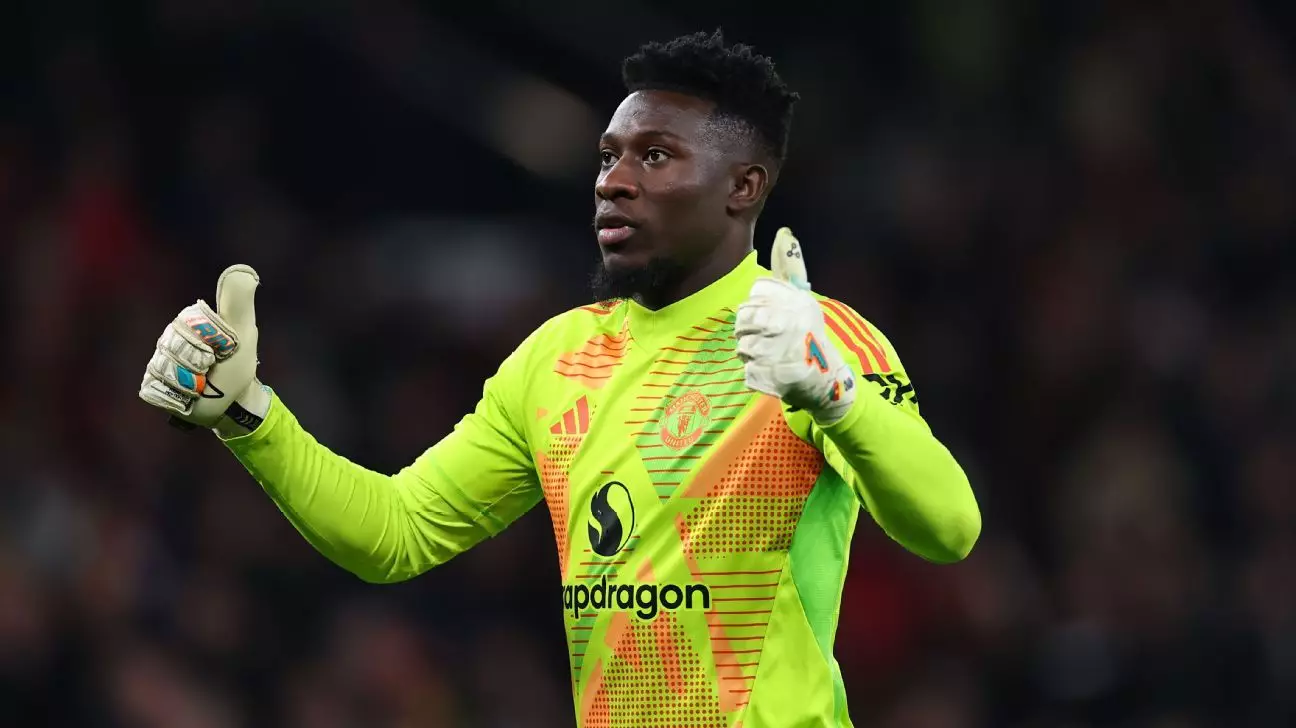Change is an often-discussed and revered aspect of football, particularly at institutions as storied as Manchester United. With the anticipated arrival of Ruben Amorim on November 11, supporters and analysts alike are keen to scrutinize the implications of a managerial shift on the team’s tactics and overall philosophy. As he is set to make his debut by ushering in a new era at Old Trafford, the questions on everyone’s minds revolve around how the players will adapt to his favoured 3-4-3 formation, a notable departure from the previously employed 4-3-3 approach. The coaching carousel, with Ruud van Nistelrooy currently holding the interim reins, has sparked a blend of excitement and anxiety regarding the upcoming tactical reconfiguration.
Goalkeeper André Onana appears unfazed by the impending shifts. His optimism reflects a deeper belief in the adaptability of the squad, emphasizing that Manchester United’s players are not only skilled but also capable of embracing tactical change. “It’s a different system, but my teammates, we are all pragmatic,” Onana asserted, underscoring a prevalent sentiment within the camp. There is an understanding that tactical adaptations, while demanding, can lead to improved performances if the squad embraces the new style. The recent display from Sporting CP, a club Amorim coached to success, reinforces the notion that a fresh approach can yield significant rewards.
Onana’s remarks provide a window into the players’ mindset—prepared and resilient. This belief is essential in a team that has faced scrutiny for inconsistencies in recent performances. With composure emanating from a player of Onana’s stature, it appears the squad acknowledges the need for transformation and is ready to meet the challenges head-on.
As the coaching staff undergoes a metamorphosis, the fate of Ruud van Nistelrooy remains uncertain. Initially brought in as an assistant under Erik ten Hag, his promotion to caretaker manager has thrust him into the spotlight, but the impending arrival of Amorim casts a shadow over his future with the team. Van Nistelrooy himself has expressed a lack of clarity regarding his position, acknowledging, “I haven’t spoken with him [Amorim],” adding a layer of tension to the situation.
With a new backroom staff expected alongside Amorim, the next few weeks will be pivotal for Van Nistelrooy. He must focus on his responsibilities in the short term, navigating the squad through immediate challenges while also remaining mindful of his own aspirations. The delicate balance he must maintain is crucial to the team’s performance, as the effects of transition can often have unforeseen consequences in competitive environments.
As Manchester United gears up for their forthcoming Europa League clash against PAOK, the return of defender Leny Yoro, following an extended injury absence, injects a much-needed sense of optimism. His presence in training signifies not just a personal triumph but could materially impact the squad as they navigate through fixture congestion and tactical adaptations.
Coach Van Nistelrooy has highlighted Yoro’s recovery management, indicating that comprehensive planning was involved to ensure he returns to peak fitness. The implications of this are more profound than just his individual comeback; it reflects the broader ethos of resilience and preparedness the club is fostering as they embrace the changes ahead. Additionally, the gradual return of several other key players may provide United with a broader tactical flexibility not seen in previous matches.
In summation, while the transition to Ruben Amorim’s management may rattle traditionalists, it also presents a pivotal opportunity for Manchester United to refresh and revitalize their approach on the pitch. With players like Onana voicing their readiness to adapt, and the potential healing of injured personnel, the stage is set for a promising revival of fortunes. The integration of Amorim’s tactical vision could facilitate a rejuvenation of a club that has long been associated with attacking football and innovation. As history has shown, the capacity to evolve is what separates the great clubs from the good, and Manchester United stands at the precipice of an exciting new chapter.

Leave a Reply